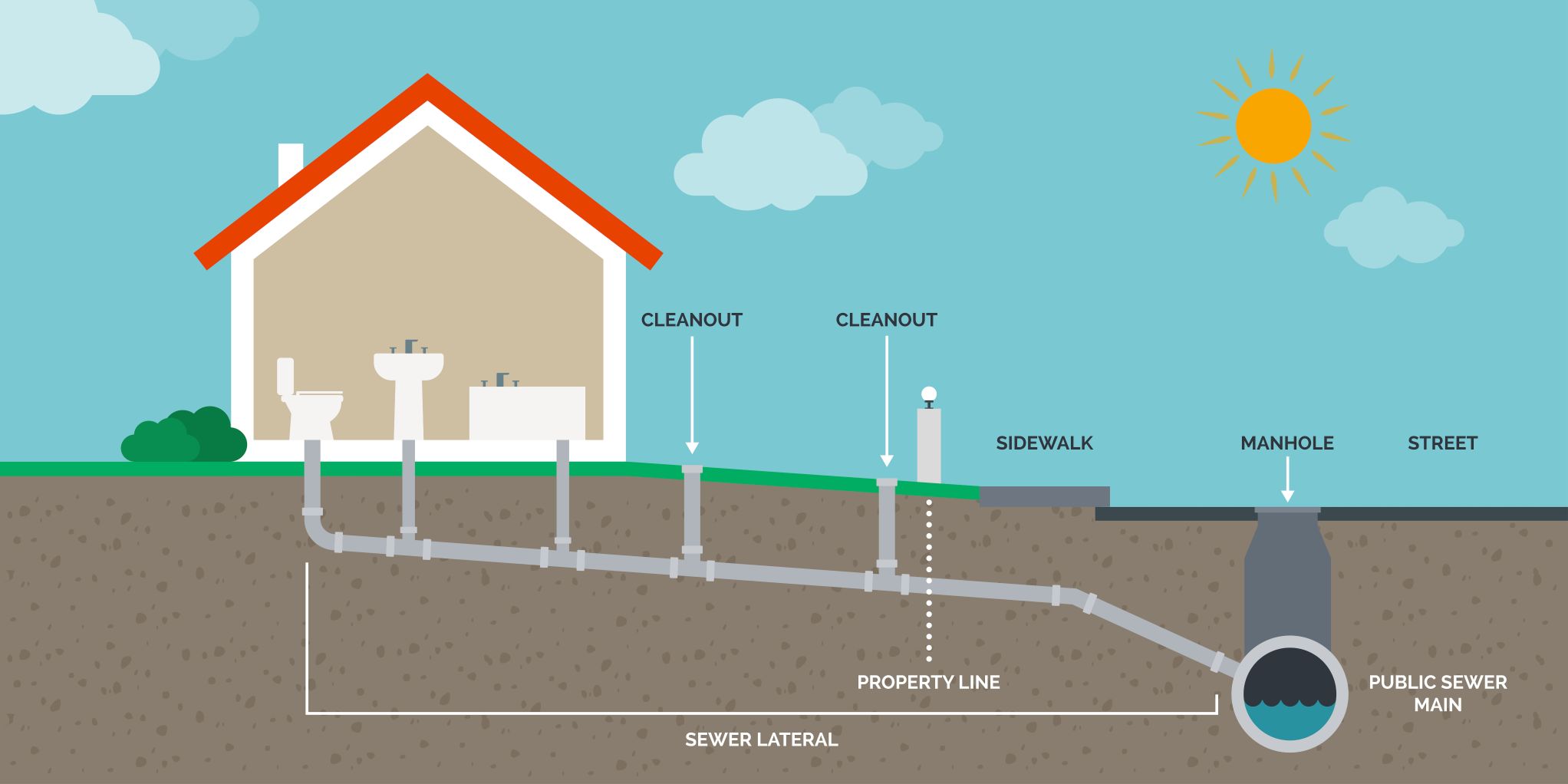
As a homeowner, it’s wise to understand how your home’s main systems work in case they ever encounter issues. That way, you can take action to keep your living space safe, hygienic, and running efficiently.
Plumbing is a significant part of your daily life, even if you don’t usually give it much thought. Whether you’re dealing with a minor clog or preparing to call a plumbing repair service, it’s helpful to understand how the drainage system works and the problems you’re most likely to face. Here, we break down the complexities of plumbing drainage to help you address issues yourself or communicate more effectively with your plumbing service provider.
What is a Drainage System, and How Does It Work?
A residential plumbing drainage system removes wastewater and sewage from your home. This system operates on simple principles of gravity and water flow, directing waste from your toilets, sinks, showers, dishwasher, washing machine, and other plumbing fixtures and appliances. The proper pitch, or pipe angle, is necessary to allow wastewater to flow to the public sewer system or a private septic tank. As long as this intricate pipe network is designed carefully and used properly, your home should remain clean, sanitary, and fresh-smelling.
The Parts of a Drainage System
The primary components of your home’s plumbing drainage system include:
- Drains: These are the parts you interact with most. Every fixture—from your toilet and shower to your kitchen sink and dishwasher—has a drain to channel water away from your home. Keeping your drains clog-free is crucial to prevent slow drainage and backups.
- Traps: Every drain has a trap, a curved section of pipe that holds water to prevent sewer gases from rising into your home. Check under your sink or behind your toilets, and you’ll see that characteristic P-shaped bend in the pipe. These are often the first places where clogs form, so knowing their locations and that you can remove them is helpful when clearing minor blockages.
- Plumbing vents: Vents ensure that water flows smoothly through your pipes by allowing air to enter the drainage system. If the vents become blocked by bird nests or snow, you might notice your drains gurgling or water flowing more slowly than it should as a vacuum forms in the drainpipe. These are signs of vent trouble that you should address right away.
- Sewage grinder pump: In homes where the drainage system is below the main sewer line or septic tank, a grinder pump is necessary to keep the system flowing. This device collects wastewater from your home and grinds up solids before pumping the effluent out to the sewer. This component prevents clogs and ensures waste is effectively removed from your property.
- Main sewer line: The final component of your home’s drainage system carries all wastewater to the sewer or septic tank. Problems here can affect your entire home, making it a critical area of focus for plumbing maintenance and repair.
Common Drainage System Issues
Because of the high demands placed on residential drainage systems, it’s common to run into problems. Here are some issues to watch out for:
- Clogged drains: From hair in the shower drain to grease in the kitchen sink, clogs are a common nuisance that can often be resolved with a plunger or plumber’s snake. Regular preventative drain cleaning helps prevent these blockages.
- Sewer line leak: A leak in the main sewer line can damage your property and pose serious health risks. Look out for unusually lush patches of grass, standing water in your yard, or unpleasant odors as early warning signs.
- Collapsed sewer pipes: Sewer lines don’t just leak—sometimes, they completely collapse. Older homes with aging infrastructure are particularly susceptible to this issue. Signs include frequent backups and sluggish toilet flushing.
- Tree root intrusion: Trees searching for moisture and nutrients may find their way into your sewer line, causing blockages or damage. This problem is tricky to diagnose without a professional sewer camera inspection, as the symptoms often mimic other issues.
- Multiple slow drains: If multiple fixtures start draining slowly, it might indicate a developing sewer line clog or venting problem. Address this early to prevent more significant backups.
- Foul odors: Persistent smells from your drains could signal decaying organic matter, a dry trap, or a venting issue. It’s a potentially easy fix but requires you to correctly identify the source of the smell.
Why Hire a Plumber for Drainage System Issues?
Tackling drainage system issues yourself can be daunting, and in some cases, counterproductive. Here’s why enlisting a professional plumber is a smart choice:
- Expert diagnosis: Plumbers can quickly identify the source of common drainage system problems, which might not be obvious to the untrained eye. This expertise saves you from making costly, time-consuming mistakes.
- Professional equipment: Specialized tools like motorized drain augers, hydro-jetting machines, and sewer line cameras allow plumbers to solve problems more effectively than DIY methods.
- Wastewater hazards: Dealing with sewage requires proper safety equipment and procedures to protect your health. Plumbers are trained to handle these situations safely.
- Long-term results: A quick fix might solve a problem temporarily, but professionals resolve the issue thoroughly to prevent future complications.
- Peace of mind: Knowing a skilled professional is on the job alleviates the stress of dealing with unexpected issues yourself or wondering if a haphazard DIY repair will hold.
Partner with Puget Sound Plumbing and Heating
If you’re looking for a go-to plumber in Seattle, consider Puget Sound Plumbing and Heating. With over 20 years of dedicated service, our family-owned business is known for providing quality solutions at fair prices. Our commitment to excellence and customer satisfaction is backed by a team of skilled and fully licensed plumbers. We’re available 24/7 for emergency plumbing needs, so you can count on us when you need us most. The next time you have a drainage system problem, please contact us at (206) 938-3219.


